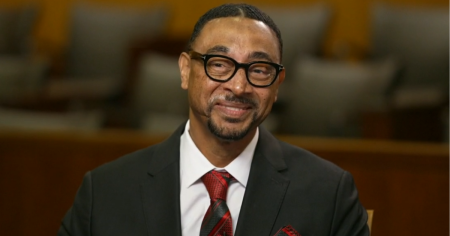A Connecticut Man’s Conditional Release Sparks Controversy and Concern
Introduction to the Case
In a decision that has sparked widespread controversy, a Connecticut man named Tyree Smith has been granted conditional release from the state’s only maximum-security psychiatric hospital. Smith was previously confined to Whiting Forensic Hospital for 60 years after being found not guilty by reason of insanity for the brutal murder of Angel Gonzalez in 2012. Gonzalez’s body was found mutilated in a vacant apartment in Bridgeport, with evidence suggesting Smith had eaten parts of his victim’s brain and eyeball while drinking sake. The case shocked the community and raised questions about mental illness, justice, and public safety.
The Crime and Its Aftermath
The murder occurred in January 2012, and Smith’s cousin came forward with chilling details, stating that Smith had confessed to her about eating parts of Gonzalez’s body. This confession, combined with the gruesomeness of the crime, led to Smith’s confinement in a psychiatric hospital rather than a prison sentence. Over the years, Smith underwent treatment for schizophrenia and substance abuse disorders, which were deemed to be in remission by a psychiatrist. This assessment played a crucial role in the Psychiatric Security Review Board’s decision to grant him conditional release.
The Conditional Release Decision
The conditional release means Smith will be moved to a community setting under strict supervision, including continued treatment and around-the-clock monitoring. While this decision was reached after a thorough evaluation of Smith’s mental health progress, it has been met with outrage and concern from various stakeholders. Gonzalez’s family, in particular, has expressed fears that Smith may still pose a danger to society. Talitha Frazier, Gonzalez’s sister-in-law, questioned how the public could be assured that Smith would not commit another violent act.
The Victim’s Family Speaks Out
The emotional toll on Gonzalez’s family cannot be overstated. Frazier’s concerns highlight the deep pain and mistrust that often follow such tragic events. Families of victims often struggle with the idea of the perpetrator being released back into society, especially when the crime involves such extreme violence. The feeling of injustice is compounded by the knowledge that Smith’s release is based on his mental health status, leaving many to wonder if accountability has been served.
Lawmakers Weigh In on the Decision
State lawmakers, including Senators Heather Somers, Paul Cicarella, Henri Martin, and Stephen Harding, have criticized the decision as “outrageous” and “mind-boggling.” They argue that releasing Smith puts public safety at risk and sends the wrong message to victims of violent crime and their families. The lawmakers’ strong stance reflects broader concerns about the balance between rehabilitation and justice in cases involving severe mental illness.
The Broader Implications of the Decision
This case raises difficult questions about how society should handle violent crimes committed by individuals with mental illnesses. While mental health treatment and rehabilitation are essential, so too is ensuring public safety and providing closure for victims’ families. Smith’s conditional release serves as a reminder of the complexities inherent in such cases and the need for a system that balances compassion with accountability. As Smith begins his life in a supervised community setting, the hope is that he will continue to receive the support he needs to maintain his mental health and reintegrate safely into society. However, the fears and doubts expressed by Gonzalez’s family and lawmakers underscore the challenges of achieving this balance and the long-lasting impact of such crimes on all parties involved.















